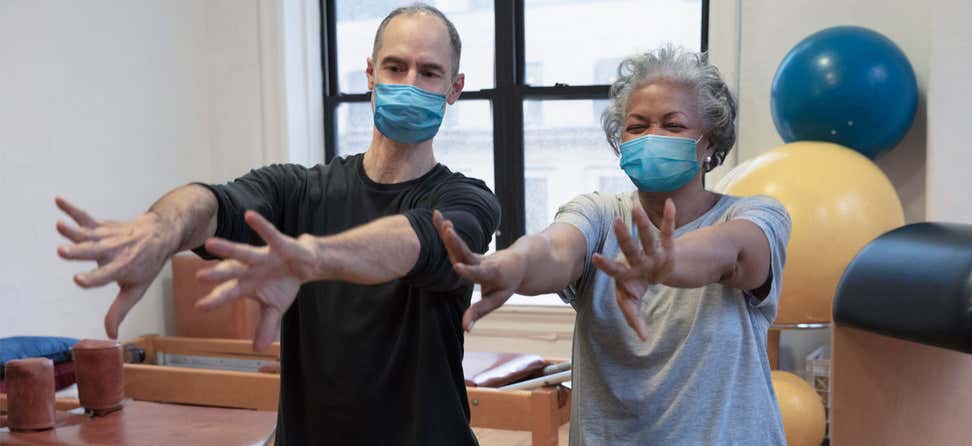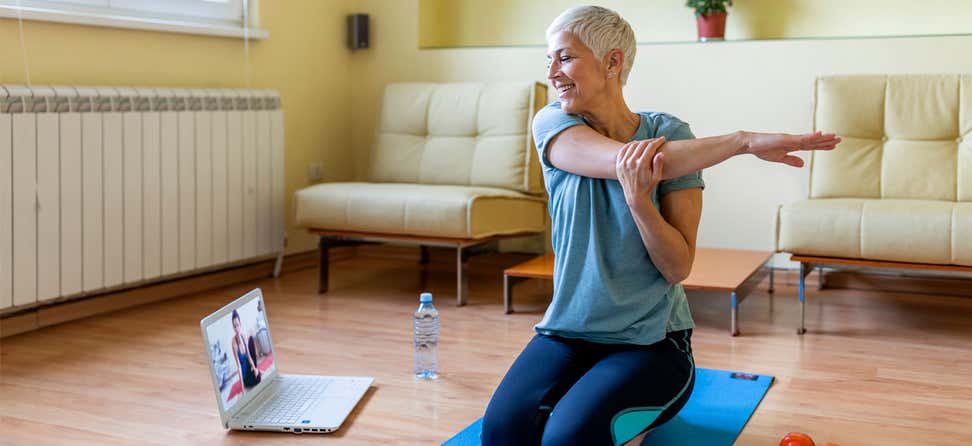Key Takeaways
80% of older adults live with least one chronic disease, and 68% have at least two. Many adults with chronic conditions struggle to manage them.
Chronic disease self-management programs can help older adults gain control of their symptoms and live their daily life.
Use the Eldercare Locator to find organizations in your area and ask if they offer these programs.
Explore these proven chronic disease self-management education programs.
Better Choices, Better Health®
Better Choices, Better Health® (Online CDSMP, Asynchronous) is an on-line interactive version of the Chronic Disease Self-Management Program (CDSMP). Participants log on at their convenience 2-3 times per week for a total of about 2 hours per week, participants do not need to log on at the same time. The program is offered on a dedicated website utilizing discussion boards and weekly lessons, with approximately 25 people per workshop. All information is private and anonymous.
BRI Care Consultation™
BRI Care Consultation™ is a care-coaching program, owned by the Benjamin Rose Institute on Aging (BRIA), for older and younger adults with chronic health conditions/disabilities and their family or friend caregivers. It is delivered via telephone, mail, and email by trained care consultants. The core components of the Program include: 1) assessment, 2) action planning, and 3) ongoing maintenance and support. Through nearly two decades of research, BRI Care Consultation has been proven to provide the ongoing coaching and support needed for people with chronic conditions and their family caregivers.
Chronic Disease Self-Management Education Suite of Programs
The suite of Chronic Disease Self-Management Education (CDSME) programs originally developed by Stanford University have been proven to help older adults better manage their chronic conditions, improve their quality of life, and lower health care costs. CDSME is an interactive workshop for those living with one or more physical or mental health chronic conditions such as arthritis, diabetes, heart disease, depression, etc. Participants learn skills to manage their conditions on a day to day basis: exercise, healthy eating, symptom management (pain, fatigue, sleep, shortness of breath, stress and depression), weight loss, and communication skills. Core self-management skills taught include action planning, problem solving and decision making. View more information about different versions of CDSME programs:
- Cancer: Thriving & Surviving (In-Person or Online)
- Chronic Disease Self-Management Program (In-Person or Online)
- Toolkit for Active Living with Chronic Conditions (Mailed and/or with phone)
- Toolkit for Active Living with Chronic Pain (Mailed and/or with phone)
- Toolkit for Active Living with Diabetes (Mailed and/or with phone)
- Toolkit for Tomando Control de Su Salud (Mailed and/or with phone)
- Chronic Pain (In-Person or Online)
- Diabetes Self-Management (In-Person or Online)
- Positive Self-Management (In-Person or Online)
- Tomando Control de Su Salud (In-Person or Online)
- Workplace CDSMP (In-Person or Online)
HealthMatters Program
HealthMatters™ Program is an evidence-based health promotion program for people with intellectual and developmental disabilities (IDD). Through our community-academic partnerships, we aim to provide high quality evidence-based and evidence-informed health promotion programs and training for people with IDD and their supports in health-friendly communities.
Health Coaches for Hypertension Control
The aim of Health Coaches for Hypertension Control is to improve hypertension self-management through small group educational sessions and support offered by trained Health Coaches. Goals include: Increasing knowledge about hypertension self-management; Increasing stage of readiness to make lifestyle changes required for successful self-management; Promoting behavior changes in nutrition, physical activity, stress management, tobacco use, and medication management. Health Coaches for Hypertension Control consists of eight sessions delivered by Health Coaches using a scripted manual and visual aids.
HomeMeds
HomeMeds is an important medication safety intervention that is a perfect means for attracting contracts with health plans, health systems and provider groups. It is relatively easy to implement and affordable.
EnhanceWellness
Enhance®Wellness (EW) is an evidence-based program that connects participants with a personal health and wellness coach to improve physical, emotional, and social well-being. Based on the Chronic Care Model, EW’s participant-centered approach uses motivational interviewing techniques and validated assessment tools in fourteen domains to guide health action plan creation and accountability. Using problem-solving strategies, participants clarify goals, responsibilities, and activities as they work toward health-related behavioral change. This program works well as a hub to refer to other health promotion interventions and community resources.
Mind Over Matter
Mind Over Matter: Healthy Bowels, Healthy Bladder (MOM) is a researched and proven program designed to give women the tools they need to take control of bladder and bowel leakage. Join a MOM workshop and learn strategies for preventing or lessening symptoms including information-sharing, group activities, simple exercises, and dietary changes. With practice, these new skills are proven to help you avoid or reduce leakage so you can keep doing the things that matter most to you.
Respecting Choices
Respecting Choices Advance Care Planning programs support adults at any age or stage of health in understanding and sharing their personal values, life goals, and preferences regarding future medical care. The goal of advance care planning is to help ensure that people receive medical care that is consistent with their values, goals, and preferences during serious and chronic illness.
¡Sí, Yo Puedo Controlar Mí Diabetes! (¡Sí, Yo Puedo!)
¡Sí, Yo Puedo! is a culturally tailored 7-week program comprised of an orientation session (Week 1) followed by the 6-week diabetes self-management education lessons (Weeks 2-7). Classes are approximately two hours in length. Each lesson module is made up of 9 to 10 activities. ¡Sí, Yo Puedo! utilizes the social cognitive theory and the self-regulation model as its theoretical foundation to promote behavior change.
Wellness Recovery Action Plan (WRAP®)
Wellness Recovery Action Plan (WRAP®) is an evidence-based manualized group intervention for illness self-management delivered in a self-help group context (in-person or online). WRAP guides participants through the process of identifying and understanding their personal wellness resources (“wellness tools”), and then helps them to develop an individualized plan to use these resources to manage daily stress and symptoms.









